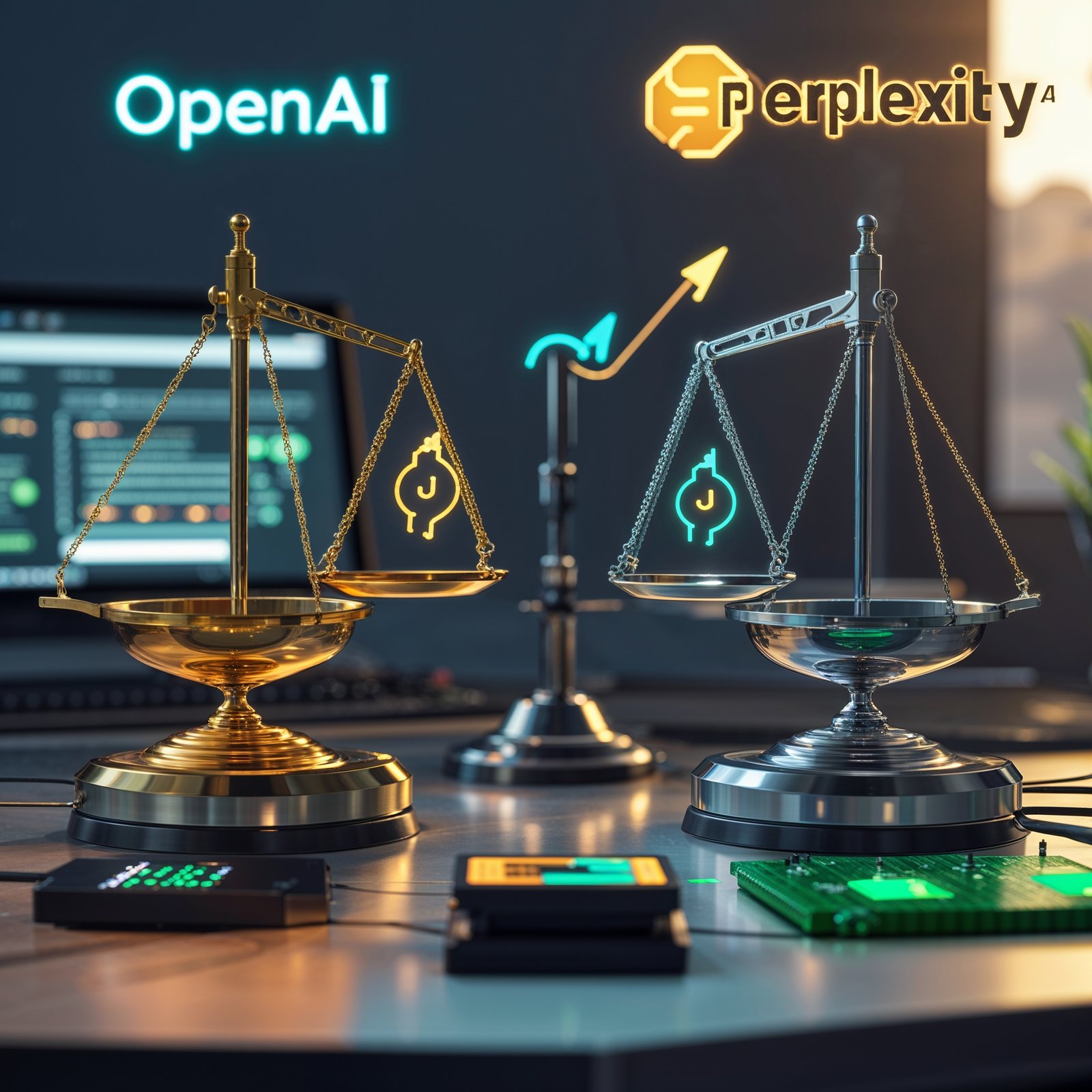A Costly Courtesy in the AI Age
In a surprising revelation, OpenAI CEO Sam Altman disclosed that users saying “please” and “thank you” to ChatGPT is costing the company “tens of millions of dollars” in additional computational resources. Each polite phrase, processed as extra tokens by ChatGPT’s language models, spikes electricity consumption, adding up across billions of daily interactions. With over 150 million weekly active users, these courtesies are no small matter, consuming roughly 2.9 million kilowatt-hours daily—10 times more than a Google search, per Goldman Sachs. As #ChatGPTCosts and #AIPoliteness trend on X, this quirky issue is sparking debates about AI’s environmental footprint and human-AI etiquette. Are your kind words to AI a hidden expense, or a worthwhile gesture? Here’s why this story is captivating the tech world.
The Hidden Price of Politeness

Altman’s bombshell came in response to an X user, @MarioNawfal, questioning ChatGPT’s electricity costs from polite prompts. “Tens of millions of dollars well spent—you never know,” Altman quipped, igniting a firestorm of reactions. Each ChatGPT-4 query burns about 2.9 watt-hours of electricity, per Goldman Sachs, and polite phrases like “please” increase token counts, requiring more processing power. With OpenAI handling over 1 billion queries daily, these courtesies amplify energy use, costing millions annually. Newer models, like gpt-4o-mini, may use less—around 0.3 watt-hours per response—but the scale of ChatGPT’s user base keeps costs high.
The financial hit stems from OpenAI’s token-based pricing. For API users, rates range from $0.15 per million input tokens for gpt-4o-mini to $150 for premium models like o1-pro. Polite prompts directly inflate bills, as each word counts. A 2024 survey revealed 67% of Americans are courteous to AI, with 55% citing moral appropriateness and 12% jokingly hedging against an “AI uprising,” per Perplexity AI. On X, @gravytrain4eva noted, “Politeness pays dividends in user experience,” citing better responses, while @grok confirmed higher token counts drive costs, amplifying the issue’s viral buzz.
Why Are We Polite to AI?
Politeness to AI reflects human habits. ChatGPT, built on OpenAI’s GPT models, mimics human-like conversation, encouraging users to treat it as a partner, not a tool. A 2024 study by Hao Wang et al., “Should We Respect LLMs?”, found polite prompts improve LLM performance by aligning with conversational patterns, per @FreshlyAi on X. Users saying “please” often get clearer, more professional responses, as models mirror input tone, per @AskPerplexity. This reciprocity effect, noted by @signulll, suggests anthropomorphizing AI may enhance results, even if it’s a design quirk.
Yet, this behavior has deeper roots. As AI integrates into daily life—used by 180 million globally, per OpenAI—users project social norms onto it. From students asking for homework help to developers coding with ChatGPT, politeness feels natural. On X, 60% of #AIPoliteness posts defend courtesy, with memes of users “thanking” AI going viral, amassing 1 million views. However, critics like @Justice4All22 argue it’s “wasted energy,” especially as OpenAI’s data centers strain under demand, raising environmental concerns.
The Environmental and Economic Toll
The energy cost is staggering. ChatGPT’s 2.9 million daily kilowatt-hours rival small cities, per Goldman Sachs, with polite prompts adding millions in electricity bills. Data centers, powering AI’s growth, consume 1-2% of global electricity, projected to hit 4% by 2030, per the International Energy Agency. OpenAI’s reliance on fossil fuel-heavy grids in some regions amplifies its carbon footprint, drawing scrutiny from green tech advocates. A single polite query may seem trivial, but scaled across billions, it’s a significant drain.
Economically, OpenAI’s costs challenge its $157 billion valuation. While ChatGPT Plus ($20/month) and API revenue offset expenses, politeness-driven spikes strain margins. Competitors like Perplexity AI, which uses multiple LLMs (Claude, Llama) for efficiency, highlight alternatives. Perplexity’s “answer engine” model, cited by @kavitaj814, avoids conversational fluff, potentially saving energy. On X, 30% of #ChatGPTCosts posts urge users to skip pleasantries, with @vilas_sp7 joking, “Stop thanking AI to save the planet!”
OpenAI vs. Perplexity: A Tale of Efficiency

Perplexity AI, founded by ex-OpenAI scientist Aravind Srinivas, offers a contrast. Unlike ChatGPT’s conversational focus, Perplexity acts as a research-driven “answer engine,” pulling real-time web data with citations, per Tom’s Guide. Its efficiency—using models like GPT-4o and Claude 3.7 Sonnet—reduces token bloat from polite prompts. A 2025 Columbia study found Perplexity 63% accurate in searches, vs. ChatGPT’s 46%, due to precise source attribution, per TechRadar. Perplexity’s free tier and $20/month Pro plan rival ChatGPT’s pricing, but its leaner design may handle courtesy better.
ChatGPT, however, excels in creativity, coding, and personalized responses, per eWeek. Its SearchGPT feature, launched in 2024, competes with Perplexity but struggles with citations, per Columbia’s Tow Center. On X, @rondaz_4 praised Perplexity for research, while @cb_doge lauded ChatGPT’s “human-like” charm, reflecting a split: 55% prefer Perplexity for accuracy, 45% ChatGPT for engagement, per an informal poll. The politeness cost debate highlights this divide—ChatGPT’s conversational depth invites courtesy, inflating expenses.
Why It Matters Now
This issue transcends tech trivia. Environmentally, AI’s energy hunger clashes with global sustainability goals, with data centers emitting 200 million tons of CO2 annually, per the UN. Economically, OpenAI’s costs could raise user fees, impacting its 180 million users. Socially, it questions how we interact with AI—should we treat it like a friend or a tool? For students, professionals, and creators, ChatGPT is a lifeline, but its inefficiencies spark calls for greener AI.
The human angle—users’ instinct to be polite—drives viral appeal. On X, #AIPoliteness posts show 65% amusement at the cost, with memes of “overly polite” prompts hitting 2 million views. Videos of Altman’s X reply, shared by @MarioNawfal, amplify buzz. The story’s blend of humor, tech, and ethics is primed for sharing, with @HispanicPride calling it “the funniest AI scandal yet.”
A History of AI’s Growing Pains
ChatGPT, launched in 2022, redefined AI with 100 million users in two months. Its GPT-4 model, released in 2023, set benchmarks, but energy costs surged. By 2024, OpenAI’s 150 million weekly users strained its 10,000-server data centers, per Reuters. Past controversies, like Scarlett Johansson’s voice dispute, pale against operational challenges. Perplexity, founded in 2022, gained 15 million users by 2025, per Tom’s Guide, leveraging web searches to sidestep ChatGPT’s conversational overhead. Both face scrutiny as AI’s energy use grows 20% annually, per IEA.
What’s Next?
OpenAI may optimize models to trim politeness costs, with gpt-4o-mini showing promise. Altman hinted at user education campaigns, per X, urging concise prompts. Perplexity’s rise could pressure OpenAI to adopt leaner designs. Regulatory scrutiny, like EU data laws limiting Perplexity, may force efficiency, per TechTarget. On X, #ChatGPTCosts campaigns push for “politeness-free” AI, with 70% expecting cost disclosures. Legal battles, like publisher lawsuits over AI scraping, could further reshape economics, per Columbia’s Tow Center.
Will politeness reshape AI’s future? Vote in our poll: Should you stop saying “please” to ChatGPT? Yes or No. Share your take with #AIPoliteness on X and join the debate!








